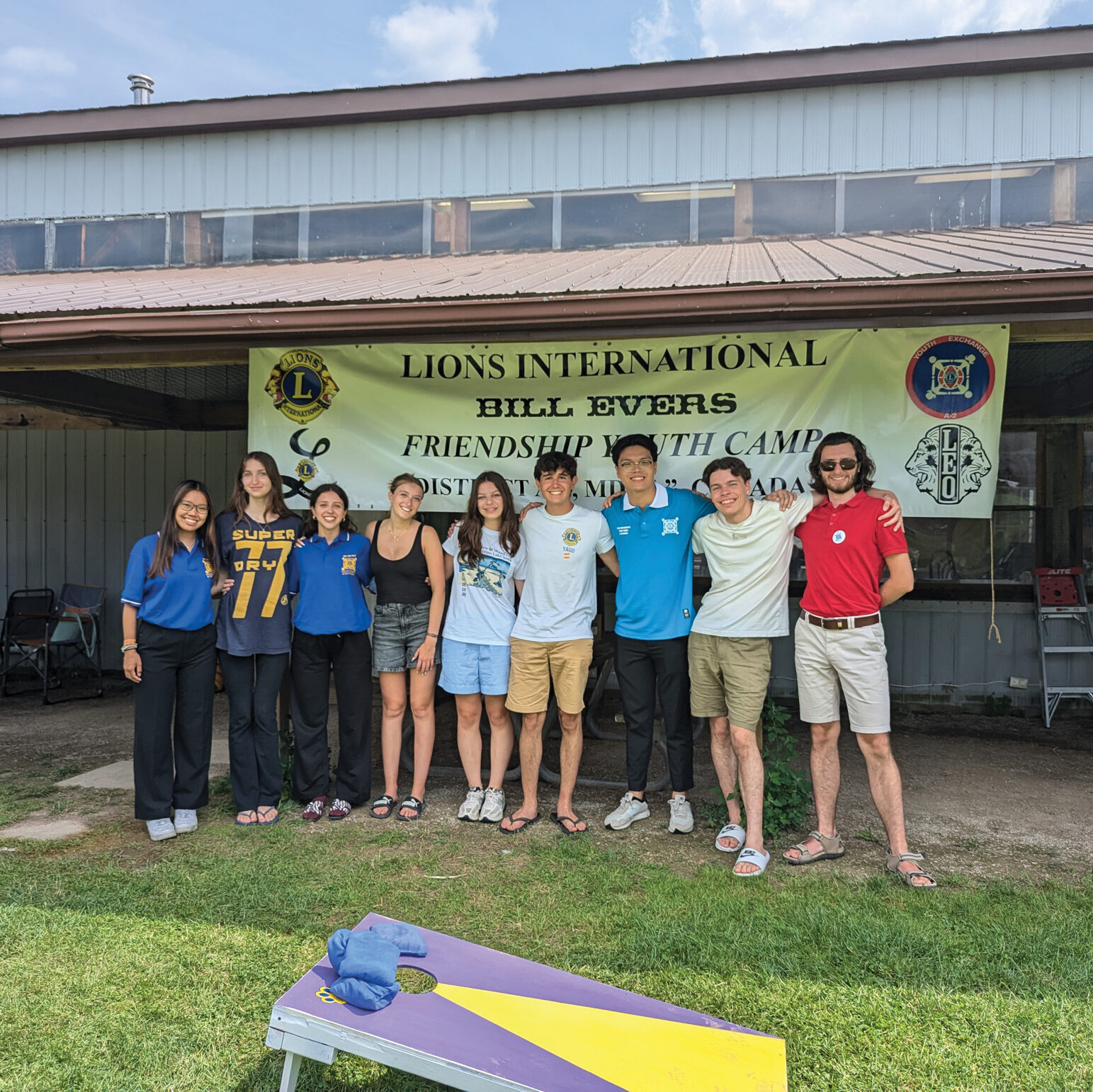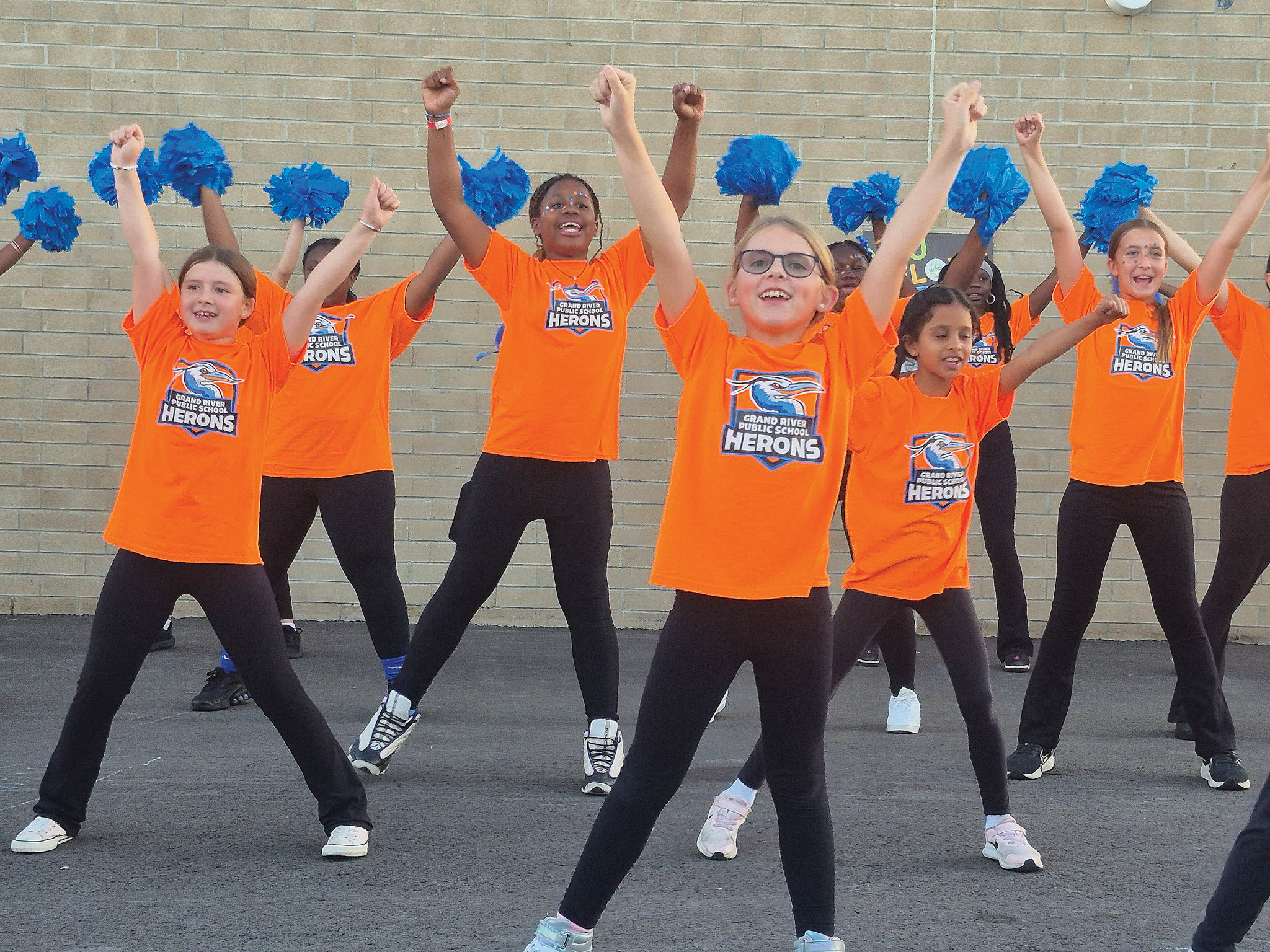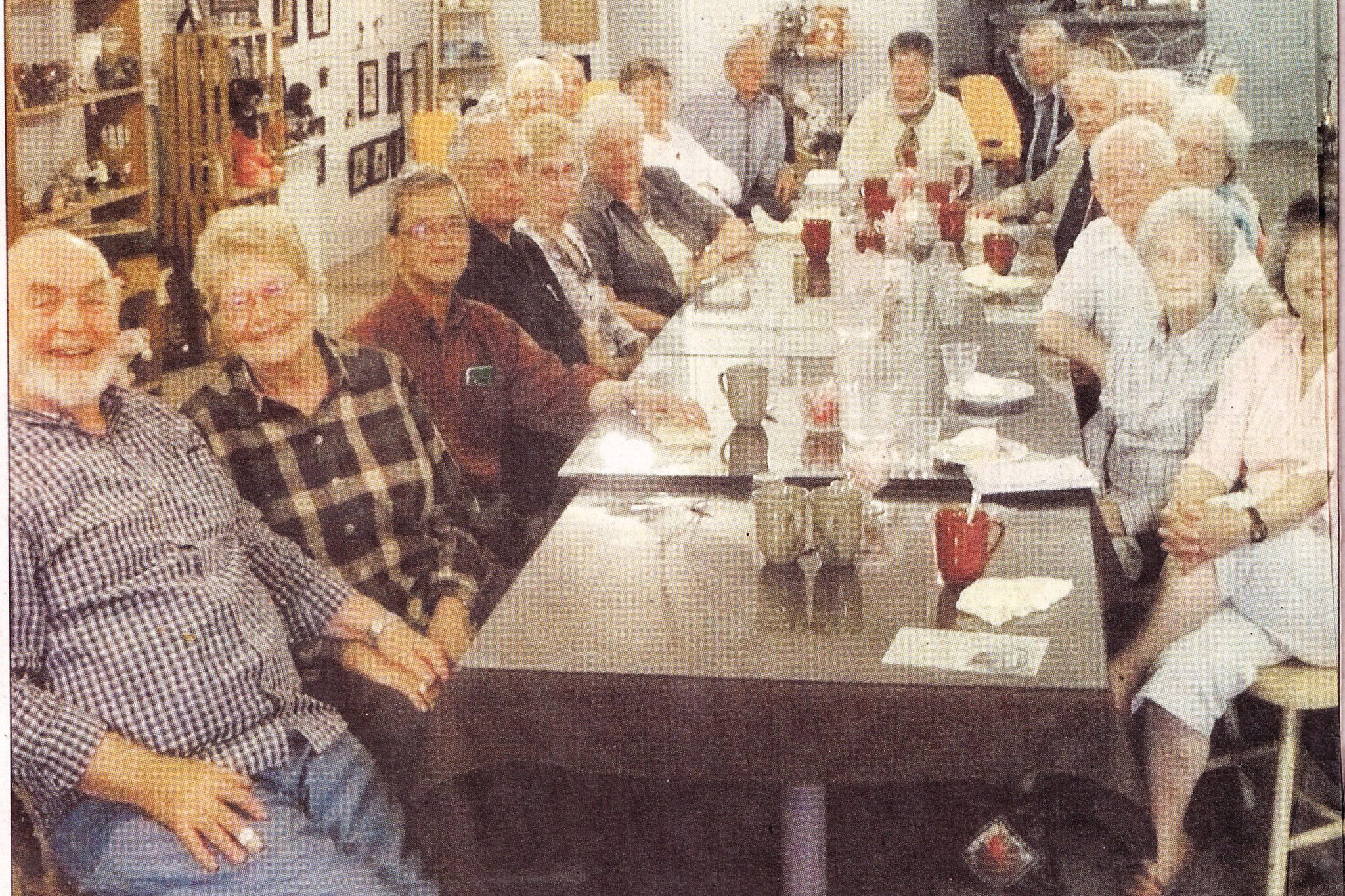HAGERSVILLE—Students from around the globe learned about life in Canada – and particularly the Haldimand area – as participants in the District A-2 Lions Club Youth Camps and Exchange Program.

—Haldimand Press photo by Tamara Botting.
Bill MacKenzie of the Townsend Lions Club has been chair of the district’s program for the past 16 years. He explained that most of the students were in Canada for a month; they spent some time with local host families – in Hagersville, Port Dover, St. Williams, Vittoria, and Walsingham – before spending 10 days at a camp at Springvale Bison Farm in Hagersville, heading home after two more days with their host families.
Generally speaking, the participants are between the ages of 16 and 21. This year, the district had nine youths visit; in the past, there have been upward of 20. The organizers are hoping to add more host families to their roster, and anyone interested in being a host family is encouraged to reach out to their local Lions Club for more information.
MacKenzie said the most rewarding thing is seeing the changes in the youths over the years, particularly the ones who come for several years in a row. He noted that, sometimes, a youth will start the program very shy and reserved but will become more confident and outgoing by the end.
“If you can change one out of 20, you’ve done something,” he added.
The program is one that the MacKenzie family is quite familiar with; almost 20 years ago, MacKenzie’s daughter, Katie MacKenzie, went on a trip to Croatia at the age of 20.
“The difference in her going and coming back was an entirely different lady,” he said.
Katie said she had wanted to go to Croatia because she was studying Greek and Roman history at the time.
“I really wanted to pick somewhere that I could see what I’d learned here in person,” she said.
When she went, it was only a decade after the end of the Croatian War for Independence, and the two host families she ended up staying with were still recovering from the impacts of the conflict.
The second host family had purchased a farm near the seaside: “There were still parts of the garden you couldn’t go in, because there might have been mines still there… There’s bullet holes in the walls, stuff like that, where never in my life had I experienced anything close to that kind of thing.”

Despite those hardships, Katie added, “They were so welcoming, so kind and generous, even though by our standards, what they had was very little…. The father of (the second host) family had fought in the war, but he was so joyous; he was so grateful to spend time with his family.”
Seeing how others lived helped her to appreciate how much she had at home, she said.
“I went from a very comfortable lifestyle, but still always wanting more and always wanting the new thing and always wanting whatever, where my host family had to go to the library to access the internet to access their email.”
Spending time with family and friends was a priority for both of her host families, and that helped her appreciate that chasing after material items “is not the most important thing.”
Katie said she also got to see and touch living history firsthand.
“We went to an open air music festival, and our seats were pillars, marble pillars, that had fallen over ages ago.… Here, I would only ever see that in a museum,” she said. She also got to visit Diocletian’s Palace.
Katie agreed with her dad’s assessment that she changed a great deal because of her trip – not into a different person, but into a different version of herself.
“I’m the baby of the family here, but there I was the oldest, and I got to step into some of the leadership that I think has benefited me since,” she said. For instance, at the camp, everyone spoke English, but it wasn’t everyone’s first language, meaning that she ended up translating for a lot of people, which meant she spent a lot of time looking after and helping to lead others.
Katie noted that since no one there knew her, it gave her an opportunity to “show up exactly as I wanted to be and that’s all they ever knew and that’s what they accepted,” meaning that she could step into her authentic self, without the influence of any preconceived notions of those who knew her back home.
Katie said the biggest takeaway for her was “the ability to be authentic, and then bring that authenticity back home.”

For five years, Katie has opened her home so other youth could have the same experience she did (although she was unable to this year as she’s moving).
Being a host has been rewarding in its own way, and it’s not a big stretch, as some might think.
“They just become part of the family; they do whatever we’re doing. If we’re going to the library, or if we’re going to the beach,” Katie said. “Whatever we were normally doing, they just take part in that.… The point is the experience of the life that we live currently now.”
Julie Faure was one of the youth participants this year; she was visiting from France.
“I’ve never been to Canada before. It was my first time, and my first time to exchange, and I really, really enjoy it,” she said. “It’s a really good experience. I recommend it to everyone to do that.”
Faure said some of the highlights of her trip were going jet skiing and visiting Niagara Falls.





